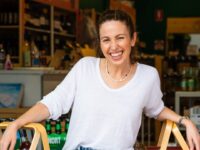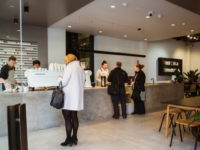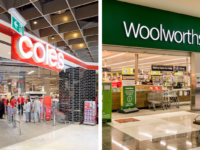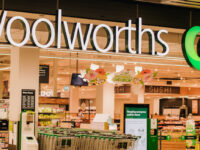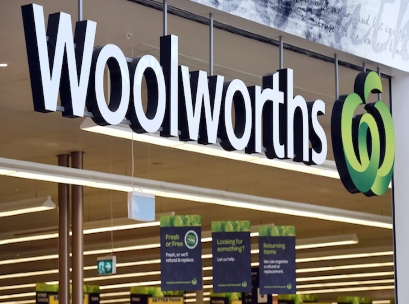
Woolworths, Coles and Coca-Cola Australia are among the local businesses to unveil sustainability initiatives for World Environment Day, June 5.
Woolworths is reducing plastic packaging for its fruit and vegetables, including bananas, carrots, tomatoes, potatoes, broccolini, sweet potatoes and organic apples. It has gotten rid of plastic clamshell and is now using adhesive tape for bananas; it has replaced plastic trays with pulp fibre as an alternative for tomatoes; and has cut the use of plastic film by 30 per cent on carrots and potatoes.
The tray for sweet potatoes and organic apples is now made of recycled cardboard instead of plastic. Woolworths said it has removed a further 237 tonnes of plastic packaging in 2019. It is now trialing the initiative on Fresh Food Kids range of apples, pears and bananas that are packaged in easy-to-recycle cardboard boxes.
“Something that was very surprising during COVID was the continued relevance of the environment, with 70% of Australians saying that taking care of the planet and making sustainable choices remained important to them, even at the height of the crisis. This is something that we’re equally passionate about and Woolworths remains as committed as ever to creating a greener future,” Woolworths Group CEO Brad Banducci said.
Earlier this week Woolworths introduced paper bags for shoppers, made from 70 per cent recycled paper.
Meanwhile, Coles and Indigenous-owned organisation Envirobank have introduced Reverse Vending Machine (RVM) at the Casuarina Shopping Village in Darwin. The machine can recycle aluminium cans, glass and PET bottles as consumers are paid for the recyclables they bring.
Customers can exchange their used bottles and cans for supermarket vouchers via Envirobank’s Crunch Platform. The Cash for Containers scheme allows Territorians to return drink containers between 150ml and 3 litres and collect a 10-cent deposit.
“It makes sense on so many levels. Coles has a strong public commitment to sustainability and this is a great opportunity for us to work with our customers to stop empty drink containers ending up on the streets, our waterways or in the landfill,” Sophie Wong, state general manager for South Australia and the Northern Territory for Coles.
Coles also thanks customers and team members for helping it become Australia’s most sustainable supermarket.
“With our 115,000-plus team members serving more than 20 million customers every week, the combined efforts of our customers and team members have a material impact on our ability to implement sustainable practices in the communities in which we operate,” Coles chief property and export officer Thinus Keeve said.
“Whether it’s making a donation at the checkout to SecondBite or dropping off soft plastics at a Coles REDCycle bin, each one of our customers are helping achieve our mission to become the most sustainable supermarket in Australia.”
Coca-Cola Australia Foundation inked a new partnership with Earthwatch Australia, providing a A$600,000 to launch a marine pollution and wetland management program in the Lower Gulf of Carpentaria.
Earthwatch will train 20 CLCAC Indigenous Land and Environment Rangers and 30 community volunteers who will participate in the ‘Wetlands not Wastelands’ program over the next three years.
“Driven by science and delivered by the local community, this program will trial a sustainable, community-based solution to managing and recycling marine pollution in remote regions. Once this model is proven, it could potentially be replicated in many other regional and remote locations in
Australia and around the world,” said Malcolm Hudson, chair of the CCAF.
“Thanks to this generous grant from the Coca-Cola Australia Foundation, ‘Wetlands not Wastelands’ will come to life and allow us to work directly with the CLCAC Rangers to develop a marine pollution management plan and a report card for future action to conserve this region’s precious habitat,” Cassandra Nichols, CEO of Earthwatch Australia, said.
It introduced two Plastic Collective Shruders (plastic recycling machines) in Burketown and Normanton. The Rangers will also be trained on how to use Shruders and how to turn plastic waste into commercial products. The sustainable program will “span hundreds of kilometres of the expansive Gulf region, from the Northern Territory border in the west, to the Staaten River on Cape York in the east”. The program plans to enlist about 30 local volunteers.
Across the pond, in New Zealand, 12 grocers have formed a collective to minimise food and packaging waste. The Sustain Aotearoa collective is a support network for zero-waste grocers, that are mostly owner-operated small businesses and help them to increase their influence on supply chains to reduce packaging waste. It will also become a resource for new zero-waste grocers just starting.
“We’ve all been there; we know how hard it is to set up. If Sustain Aotearoa can help others get off the ground more quickly, with the benefit of our members’ learnings, that’d be a great outcome,” Bron Green, Sustain Aotearoa president and owner of Be Free Grocer in Palmerston North, said.





